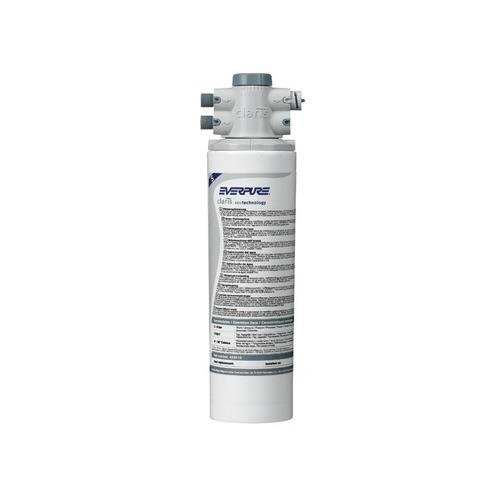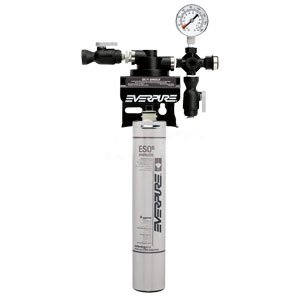Your cart is currently empty!
Water Filtration
Ideal water for espresso has a TDS (total dissolved solids) of 90-150 ppm, with no extraneous odors or flavors that would interfere with taste, but still has enough TDS that the minerals in the coffee are able to help do the work of extraction.
Do not use Distilled or Reverse Osmosis (RO) water that has no minerals in it. Water below 50ppm TDS or 1.5 grains hardness for coffee of any form is considered too soft and interferes with the brewing process and distorts the taste.
All espresso machines require some amount of dissolved minerals to function, and to make coffee taste great.
Espresso Machines with a Water Reservoir
There are 3 main types of water you can buy at the grocery store.
Distilled Water: This is essentially RO water. It has NO minerals in it and is not for espresso machines.
Purified Drinking Water: This is it! This is what you need! This water has been filtered and all the bad stuff removed. If your home machine has a reservoir that needs to be filled….this is the good water to purchase and use.
Already good tasting, St. Louis tap water through a Brita Filter is just fine.
There are even pump options out there if you need a large amount of water and your machine is plumbed in.
Spring Water: This water taste great, but is NOT for espresso machines. The reason this water taste good is that it supposedly comes from the Earth. While this water makes it purification journey through the natural filters in the ground it picks up higher doses of various minerals. These minerals might taste great, but they are way out of range for an espresso machine.
There are other “waters” out there….Seltzer water, Tonic Water, Rain Water, etc., but no.
Espresso Machines that are Plumbed in
If your machine is plumbed in, you need a water filter. Here are just a few.
St. Louis Metro has pretty good water!
With the properly sized filter in place and changed out at least once a year, your machine should age nicely without any costly blockage repairs.

Pentair Everpure ESO 6
The
ESO has a fixed blend of about 40% of filtered water. This means that
along with removing the bad chemicals all together it filters 40% of the
mineral content out of the water provided to it.
With
the hardness level that St. Louis Metro has this filter should be
changed out around the 600 gallon usage range or to be safe, at least
once a year for the average home machine. The ESO 6 filter can use the QL2 or the QL3 Filter Head . It is 23.75″ H x 5.6″ W x 4″ D.
Pentair Everpure ESO 7
The bigger version of the ESO 6 filter. Same function just a couple hundred gallon larger usage range and taller dimensions. The ESO 7 filter can use the QL2 or the QL3 Filter Head . It is 27.5″ H x 5.6″ W x 4″ D.

Pentair Everpure Claris S
With the addition of a water softening component, this filter has an adjustable blend feature that allows the customization of how much mineral content you want in the product water. The S has a rated capacity of around 600 gallons. The Claris S filter can use the Gen 2 filter head.
The Everpure Claris system was designed to allow the user to control the relative water softness of his or her water supply by adjusting the level of its exposure to a bed of hydrogenated resin – an alternative to traditional salted resin – effectively putting the user in control of the alkalinity and mineral content of the water.

Pentair Everpure Claris M
There are a total of 6 different Claris sizes that keep going in size and capacity. The M is the next step up with a rated filtering capacity of about 1,000 gallons. The Claris series can use the Gen 2 filter head.
Keep in mind that you should size your filter by the amount of water used within 6 months to 1 year. All filters should be changed at least once a year.
